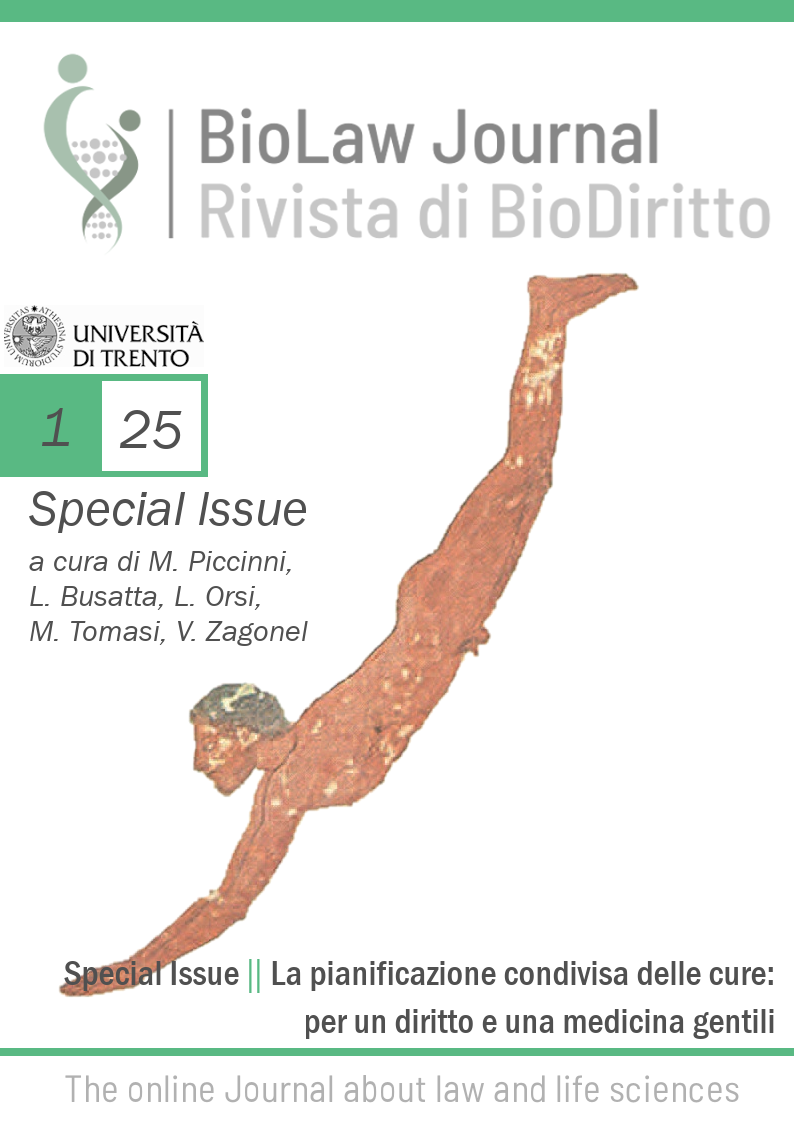Capacity and consent in “shared care planning” for patients with psychiatric disorder or dementia: insights from the studies conducted at Fatebenefratelli of Brescia
DOI:
https://doi.org/10.15168/2284-4503-3420Keywords:
Shared care planning, advance care planning, patients with psychiatric disorder or cognitive disorder and dementia, capacity and consent to medical treatment, support in decision-makingAbstract
This paper discusses the results of two studies conducted between 2021 and 2022 by IRCCS Fatebenefratelli in Brescia to collect data on the attitudes regarding Law No. 219/2017 of different actors involved in the care for people with psychiatric disorder or cognitive disorder and dementia as well as on the implementation of the Law. This was a first step to promote better interaction between regulatory framework and clinical practice. This paper focuses on some aspects of the studies that deals with shared care planning (SCP), the Italian way for Advance Care Planning (ACP). I.e.: i) the clarity of the concept of capacity in Law No. 219/2017; ii) the legitimacy in principle for patients with psychiatric disorder or cognitive disorder and dementia to realize ACP; iii) the usefulness for these groups of patients to realize in practice a SCP; iv) the “right time to” start an ACP; and v) the possible role of people close to the patient.
Downloads
Published
How to Cite
Issue
Section
License

This work is licensed under a Creative Commons Attribution-NonCommercial-NoDerivatives 4.0 International License.





